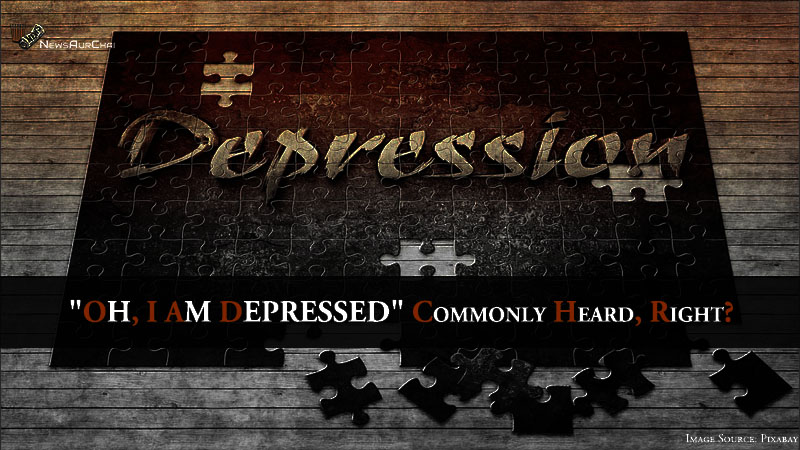
In the era where mental health is coming ahead at a significant pace, transforming into a major issue and coming up with multiple sets of reactions sticking to it. Without any doubt, today’s generation faces various kinds of mental dilemmas like depression, anxiety, stress and more. Here we are to discuss this principal concern about mental health, which should not be taken lightly or made fun off. Depression is a serious issue if not given proper attention.
Mental health includes emotional, psychological, and social well-being. It affects how we think, feel, and act. It also helps to define how we handle stress, relate to others, and make choices. Mental health is essential at every step of life, from childhood to adolescence and throughout adulthood.
Nowadays, it is common to hear “I am depressed”, without understanding the seriousness attached to it. We say it because it makes us cool, it helps us to stay in trend. Right? However, please take a minute and think about it intensely.
Saying “I am depressed” when you are sad doesn’t make you cool or trendy. It is not cool to be a patient of the mental dilemma, and hence using depressed instead of sad is undoubtedly a big word to use. From here on enlightening yourself regarding what is depression.
Depression is when we all feel sad, moody or low from time to time. Some people experience these feelings intensely, for extended periods (weeks, months or even years) and seldom without any specific reason. Depression is more than just a low spirit – it’s a critical condition that affects your mental as well as physical health.
Symptoms of depression:
Though depression may befall only once in your life, people frequently have recurring episodes. During these episodes, signs happen most of the day, every day and may comprise:
- Feelings of sadness, tearfulness, emptiness or hopelessness.
- Angry outbursts, irritability or frustration, even over small matters.
- Lack of interest or delight in most or all normal activities, such as sex, hobbies or sports.
- Sleep disorders, including insomnia or sleeping too much.
- Tiredness and loss of energy, so even small tasks take extra effort.
- Lessened appetite and weight loss or increased cravings for food and weight addition.
- Anxiety, agitation or restlessness.
- Lagged thinking, speaking or body movements.
- Feelings of inability or guilt, fixating on past failures or self-blame.
- Trouble in reasoning, concentrating, making decisions and remembering things.
- Persistent or recurrent thoughts of death, suicidal thoughts, suicide attempts or suicide.
- Unexplained physical problems, such as back pain or headaches
It’s not known precisely what causes depression. As with many mental disorders, a variety of factors may be involved.
We often tend to confuse our sadness with depression. Thus for everyone, depression became a regularly used word with no distinction, between the two. Is it appropriate to use depression instead of sad? To its weight. Isn’t there any difference between the two? Well, there is a vast distinction between being sad and depressed. I will let you know so that you don’t use this heavy word again.
The distinction between Sadness and Depression
Sadness is a natural human emotion. We have all encountered it, and we all will get again. Sadness is usually triggered by an intricate, hurtful, challenging, or frustrating event, activity, or condition. In other words, we tend to feel sad about something. This also means that when something changes, our emotional pain fades, when we have adjusted or recovered over the loss or disappointment, our sadness settles.
Depression is an abnormal emotional state, a mental illness that affects our thinking, emotions, perceptions, and behaviours in pervasive and chronic ways. When we are depressed, we feel sad about everything. Depression does not necessarily require a stressful event or situation, a loss, or a change of circumstance as a trigger. It often occurs in the absence of any such triggers.
People’s lives on paper might be beautiful—they would even admit this is true—and yet they still feel horrible.
Depression colors all aspects of our lives, making everything less enjoyable, less attractive, less relevant, less lovable, and less worthwhile. Depression saps our energy, motivation, and ability to experience joy, pleasure, excitement, anticipation, satisfaction, connection, and meaning. All your thresholds tend to be lower. You are more impatient, quicker to anger and get frustrated, faster to break down. Moreover, it takes you longer to bounce back from everything.
Depression, anxiety, stress or any other mental dilemma is as natural, curable as of any other health condition. It is up to us how we treat it and by how significant sensitivity we take care of it. Making fun of people going through such terms will be of no help.
As the rate to the mental dilemma is higher in the age group of teenagers that doesn’t mean it’s a necessity that while growing up, it’s essential that we face it. This isn’t any necessity that we have to go through to grow. It may happen with some unforeseen happening or unexpected happening. During that time while you are going through this dilemma, it may seem the end of everything, but never stop believing and trusting yourself. Never give up, because it might seem to be the end, but it’s not. There are many beautiful things outside waiting for you to explore them, enhance them with your creativity. Leaving everything isn’t an option.
Let’s be mature, give it a thought. We are in the 21st century, plus should understand the enormity of the matter and do the needful. Understand the fact that “you matter to someone” is important.
SIT. TALK. UNDERSTAND. HELP and next time chose your words wisely.





